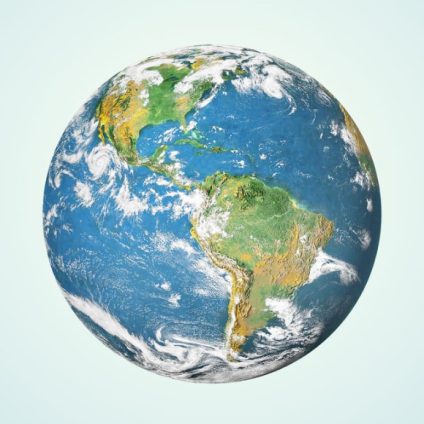Today is Earth Overshoot Day 2024. Global ecological debt has been stable for a decade. But only 60 years ago we were on the equalizer.

Earth Overshoot Day 2024, the United States consumes 5 Earth per year
From today, August 1st, we have been in debt to the Planet. In the first 213 days of 2024, we have consumed all the resources the Earth can restore in a year. In other words, humanity is consuming 1.7 Earths per year. It’s Earth Overshoot Day 2024, the Earth Overshoot Day.
Earth Overuse Day 2024: How to Calculate
What does over-exploitation mean? The overshoot is possible “because people can consume more than is renewed, thus exhausting natural capital.” The Global Footprint Network, the international organization that developed the concept of “ecological footprint,” explains this.
The idea behind this indicator is that one way to measure global sustainability is to compare the consumption and production of natural resources. On the one hand, humanity’s share of resources in its activities. On the other hand, the ability of ecosystems to restore these resources, namely the Earth’s biocapacity. All this, measured over a year.
Biocapacity means all the resources and services that marine and terrestrial ecosystems can provide: from the absorption and seizure of CO2 to the filling of the aquifers, from the amount of nutrients present in the soil to pollination, to climate regulation. To make the two measurements comparable, the Global Footprint Network uses the “global hectare”, an average of the ability of ecosystems to restore consumed resources. In other words, it is an ideal and standardized hectare of land with a capacity to produce and renew natural resources equal to the world average.
Earth Overshoot Day 2024 numbers
Over the last 10 years, the date of Earth Over-Exploitation Day has remained relatively stable. The further back in the year it falls, the smaller the ecological debt we incur with the Planet. The further back in the year it is, the more Earth would be needed to sustain humanity’s consumption levels.
Today, we ideally consume 1.75 Earths a year. Within a few decades, we have gone from being credit to being indebted, increasingly in debt. This year, the Global Footprint Network explains this using the Olympics as a reference.
While athletes compete in Paris, we consume almost two Planets a year. In 1968, Dick Fosbury revolutionized high jumping at the 1968 Olympics in Mexico, at a time when mankind used only 0.9 Earth. In 1988, when Olympic sailor Lawrence Lemieux stopped halfway to save two turning-back competitors, humanity’s demand for nature had risen to 1.3 Earths. In 2008, when Usain Bolt broke his first Olympic record, it had grown to 1.6 Terre.
“Just like athletes who achieve outstanding results through concentration, innovation, and commitment, humanity must do the same if it wants to end the overshoot in a targeted way. Can we have the same determination to reverse our ecological overexploitation?” the organization rhetorically asks.
Italy’s ecological debt
This is a global average. Some countries, however, consume much higher levels of resources. Among them is Italy. Italy’s overshoot day fell on 19 May, 70 days ahead of the world average. The day of over-exploitation 2024 for Italy came 4 days later than last year, when it fell on May 15. The improvement, however, does not change the overall picture. If all the planet’s inhabitants consumed like the Italians, we would need 2.9 Earths. While considering only the Italians’ consumption, we would need 4.4 Italians to satisfy them.
Among the countries with the heaviest ecological debt are the United States, whose levels of consumption would require 5 Earths, Australia (4.7 Earths), Russia (3.8), France (3.3), and Germany (3). Less “indebted” than Italy but still in debt are also Great Britain (2.6), Spain (2.5), China (2.5), and Brazil (1,7).
“Living constantly above the physical possibilities of our planet is a limited possibility in time, we risk an ecological disaster,” says Eva Alessi, Head of Sustainability at WWF Italy. “We now have many targeted solutions to reverse the overuse of resources and support the regeneration of the biosphere in which we live,” he adds, emphasizing that “even just putting hands on the food systems could reduce our debt: Halving meat consumption would earn 17 more days, eliminating food losses and waste that plague the planet for another 13 days.”












